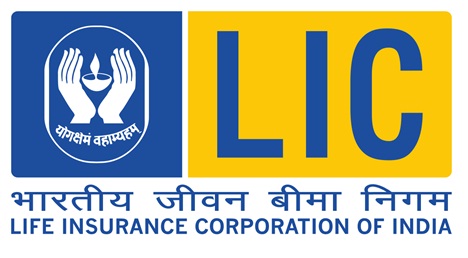| 1 |
10(7) |
Any allowance or perquisite paid or allowed by Government to its
employees posted outside India |
Entire Amount |
Individual- Salaried Employee (being a citizen of India) |
| 2 |
- |
Allowances to Judges of High Court/Supreme Court |
Exempt, subject to certain conditions |
Individual – Judges of High Court/Supreme Court |
| 3 |
- |
Compensatory allowance received by a Judge under article 222(2) of the
Constitution |
Fully Exempt |
|
| 4 |
- |
Salary and allowances received by a teacher /professor from SAARC member
state (Subject to certain conditions). |
Fully Exempt |
|
| 5 |
10(45) |
Following allowances and perquisites given to serving
Chairman/Member of UPSC is exempt from tax:
a) Value of rent free official residence
b) Value of conveyance facilities including transport allowance
c) Sumptuary allowance
d) Leave travel concession |
Fully Exempt |
|
| 6 |
10(45) |
Allowances to Retired Chairman/Members of UPSC |
Exempt subject to maximum of Rs. 14,000 per month for defraying the
services of an orderly and for meeting expenses incurred towards secretarial
assistant on contract basis. |
|
| 7 |
- |
Allowances paid by the UNO to its employees
|
Fully Exempt Individual – Government employee
|
Individual – Employees of UNO
|
| 8 |
16 (ii) |
Entertainment Allowance received by the Government employees
(Fully taxable in case of other employees)
|
Least of the following is exempt from tax:
a) Rs 5,000
b) 1/5th of salary (excluding any allowance, benefits or other
perquisite)
c) Actual entertainment
allowance received |
Individual – Government Employee
|
| 9 |
10(13A) |
House Rent Allowance (Sec. 10(13A) & Rule 2A) |
Least of the following is exempt:
a) Actual HRA Received
b) 40% of Salary (50%, if house situated in Mumbai, Calcutta,
Delhi or Madras)
c) Rent paid minus 10% of salary
* Salary= Basic + DA (if part of retirement benefit) + Turnover
based Commission
Note:
i. Fully Taxable, if HRA is received by an employee who is
living in his own house or if he does not pay any rent
ii. It is mandatory for
employee to report PAN of the landlord to the employer if rent paid is more
than Rs. 1,00,000 [Circular No. 08 /2013 dated 10th October, 2013]. |
Individual – Salaried employee |
| 10 |
10(14) |
Children Education Allowance |
Up to Rs. 100 per month per child up to a maximum of 2 children is
exempt |
Individual – Salaried employee |
| 11 |
10(14) |
Hostel Expenditure Allowance |
Up to Rs. 300 per month per child up to a maximum of 2 children is
exempt |
Individual – Salaried employee |
| 12 |
10(14) |
Transport Allowance is granted to an employee to meet expenditure on
commuting between place of residence and place of duty |
Up to Rs. 1,600 per month (Rs. 3,200 per month for blind, deaf, dumb and
handicapped employees) is exempt |
Individual – Salaried employee |
| 13 |
10(14) |
Allowance granted to an employee working in any transport business to
meet his personal expenditure during his duty performed in the course of
running of such transport from one place to another place provided employee is
not in receipt of daily allowance |
Amount of exemption shall be lower of following:
a) 70% of such allowance; or
b) Rs. 10,000 per month |
Individual – Salaried employee |
| 14 |
10(14) |
Conveyance Allowance granted to meet the expenditure on conveyance in
performance of duties of an office |
Exempt to the extent of expenditure incurred for official purposes |
Individual – Salaried employee |
| 15 |
10(14) |
Any Allowance to meet the cost of travel on tour or on transfer |
Exempt to the extent of expenditure incurred for official purposes |
Individual – Salaried employee |
| 16 |
10(14) |
Daily Allowance to meet the ordinary daily charges incurred by an
employee on account of absence from his normal place of duty |
Exempt to the extent of expenditure incurred for official purposes |
Individual – Salaried employee |
| 17 |
10(14) |
Helper/Assistant Allowance |
Exempt to the extent of expenditure incurred for official purposes |
Individual – Salaried employee |
| 18 |
10(14) |
Research Allowance granted for encouraging the academic research and
other professional pursuits |
Exempt to the extent of expenditure incurred for official purposes |
Individual – Salaried employee |
| 19 |
10(14) |
Uniform Allowance |
Exempt to the extent of expenditure incurred for official purpose |
Individual – Salaried employee |
| 20 |
10(14) |
Special compensatory Allowance (Hilly Areas) (Subject to certain
conditions and locations) |
Amount exempt from tax varies from Rs. 300 per month to Rs. 7,000 per
month |
Individual – Salaried employee |
| 21 |
Sec. 10(14) read with Rule 2BB |
Border area allowance Remote Locality or allowance or Disturbed Area
allowance or Difficult Area Allowance (Subject to certain conditions and
locations) |
Amount exempt from tax varies from Rs. 200 per month to Rs. 1,300 per
month |
Individual – Salaried employee |
| 22 |
Sec. 10(14) |
Tribal area allowance in (a) Madhya Pradesh (b) Tamil Nadu (c) Uttar
Pradesh (d) Karnataka (e) Tripura (f) Assam (g) West Bengal (h) Bihar (i)
Orissa |
Up to Rs. 200 per month |
Individual – Salaried employee |
| 23 |
Sec. 10(14) |
Compensatory Field Area Allowance. If this exemption is taken, employee
cannot claim any exemption in respect of border area allowance (Subject to
certain conditions and locations) |
Up to Rs. 2,600 per month |
Individual – Salaried employee |
| 24 |
Sec. 10(14) |
Compensatory Modified Area Allowance. If this exemption is taken,
employee cannot claim any exemption in respect of border area allowance
(Subject to certain conditions and locations) |
Up to Rs. 1,000 per month |
Individual – Salaried employee |
| 25 |
Sec. 10(14) |
Counter Insurgency Allowance if this exemption is taken, employee cannot
claim any exemption in respect of border area allowance (Subject to certain
conditions and locations) |
Up to Rs. 3,900 per month |
Individual – Salaried employee |
| 26 |
Sec. 10(14) |
Underground Allowance is granted to employees working in uncongenial,
unnatural climate in underground mines |
Up to Rs. 800 per month |
Individual – Salaried employee |
| 27 |
Sec. 10(14) |
High Altitude Allowance is granted to armed forces operating in high
altitude areas (Subject to certain conditions and locations) |
a) Up to Rs. 1,060 per month (for altitude of 9,000 to 15,000
feet)
b) Up to Rs. 1,600 per
month (for altitude above 15,000 feet) |
Individual – Members of Armed Forces |
| 28 |
Sec. 10(14) |
Highly active field area allowance is granted to members of armed forces
(Subject to certain conditions and locations) |
Up to Rs. 4,200 per month |
Individual – Members of Armed Forces |
| 29 |
Sec. 10(14) |
Island Duty Allowance is granted to members of armed forces in Andaman
and Nicobar and Lakshadweep group of Island (Subject to certain conditions and
locations) |
Up to Rs. 3,250 per month |
Individual – Members of Armed Forces |
| 30 |
- |
City Compensatory Allowance |
Fully Taxable |
Individual – Salaried employee |
| 31 |
- |
Fixed Medical Allowance |
Fully Taxable |
Individual – Salaried employee |
| 32 |
- |
Tiffin/Lunch/Dinner/ Refreshment Allowance |
Fully Taxable |
Individual – Salaried employee |
| 33 |
- |
Servant Allowance |
Fully Taxable |
Individual – Salaried employee |
| 34 |
- |
Dearness Allowance |
Fully Taxable |
Individual – Salaried employee |
| 35 |
- |
Project Allowance |
Fully Taxable |
Individual – Salaried employee |
| 36 |
- |
Overtime Allowance |
Fully Taxable |
Individual – Salaried employee |
| 37 |
- |
Telephone Allowance |
Fully Taxable |
Individual – Salaried employee |
| 38 |
- |
Holiday Allowance |
Fully Taxable |
Individual – Salaried employee |
| 39 |
- |
Any Other Cash Allowance |
Fully Taxable |
Individual – Salaried employee |

















